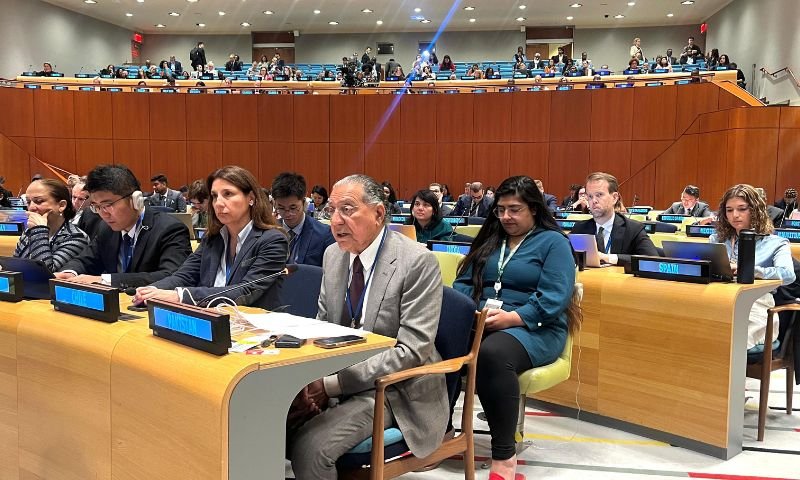United Nations, (TDI): Pakistan has called on developing countries to advocate for the implementation of commitments outlined in the UN Pact for the Future, aimed at reforming the multilateral system.
Ambassador Munir Akram, Pakistan’s permanent representative to the UN, emphasized that previous pledges have often fallen short.
No doubt, the pact we have adopted is not perfect, he stated during deliberations on transforming global governance and accelerating the 2030 Agenda for Sustainable Development.
He pointed out that many commitments from the Sustainable Development Goals (SDG) political declaration and Agenda 2030 have not been fully realized.
Ambassador Akram stressed that the transformation sought by developing nations hinges on actual implementation of these commitments.
He highlighted critical areas needing attention, including reforms to the international financial architecture, the SDG Stimulus, and the re-channeling of 50% of the 2021 Special Drawing Rights (SDR) allocations to developing countries.
Additionally, he called for increasing the representation of these nations in international financial institutions and improving their access to concessional lending.
Envoy criticizes Pact’s Trade Provisions
The envoy criticized the Pact’s trade provisions as “unsatisfactory,” asserting that trade must once again serve as a catalyst for growth and development.
Read Also: Munir Akram Hails Arshad Nadeem’s Olympic Feat
“We must resist new environmental protectionism, expand preferential treatment for developing nations, and revitalize the WTO’s conflict settlement system,” he said.
Ambassador Akram also underscored the importance of bridging the digital divide to prevent fragmentation of the digital landscape along North-South and East-West lines.
Statement by Ambassador Munir Akram
— Permanent Mission of Pakistan to the UN (@PakistanUN_NY) September 22, 2024
For Interactive Dialogue 1: Transforming global governance and turbo-charging the implementation of the 2030 Agenda for Sustainable Development, Trusteeship Council Chamber
****
Prime Minister,
Excellencies,
I thank the panelists for their… pic.twitter.com/5qu8eUxJSP
He urged for equitable data governance and stressed the necessity of harnessing the power of artificial intelligence.
He proposed the establishment of an international scientific panel on AI, an annual dialogue on AI governance, and a fund for AI capacity building.
“Ultimately, the key will be computing power for developing countries,” he concluded, emphasizing the need for access to cutting-edge technologies and investments in these essential advancements.
Farkhund Yousafzai is an Associate Editor at The Diplomatic Insight.
- Farkhund Yousafzai
- Farkhund Yousafzai
- Farkhund Yousafzai
- Farkhund Yousafzai








